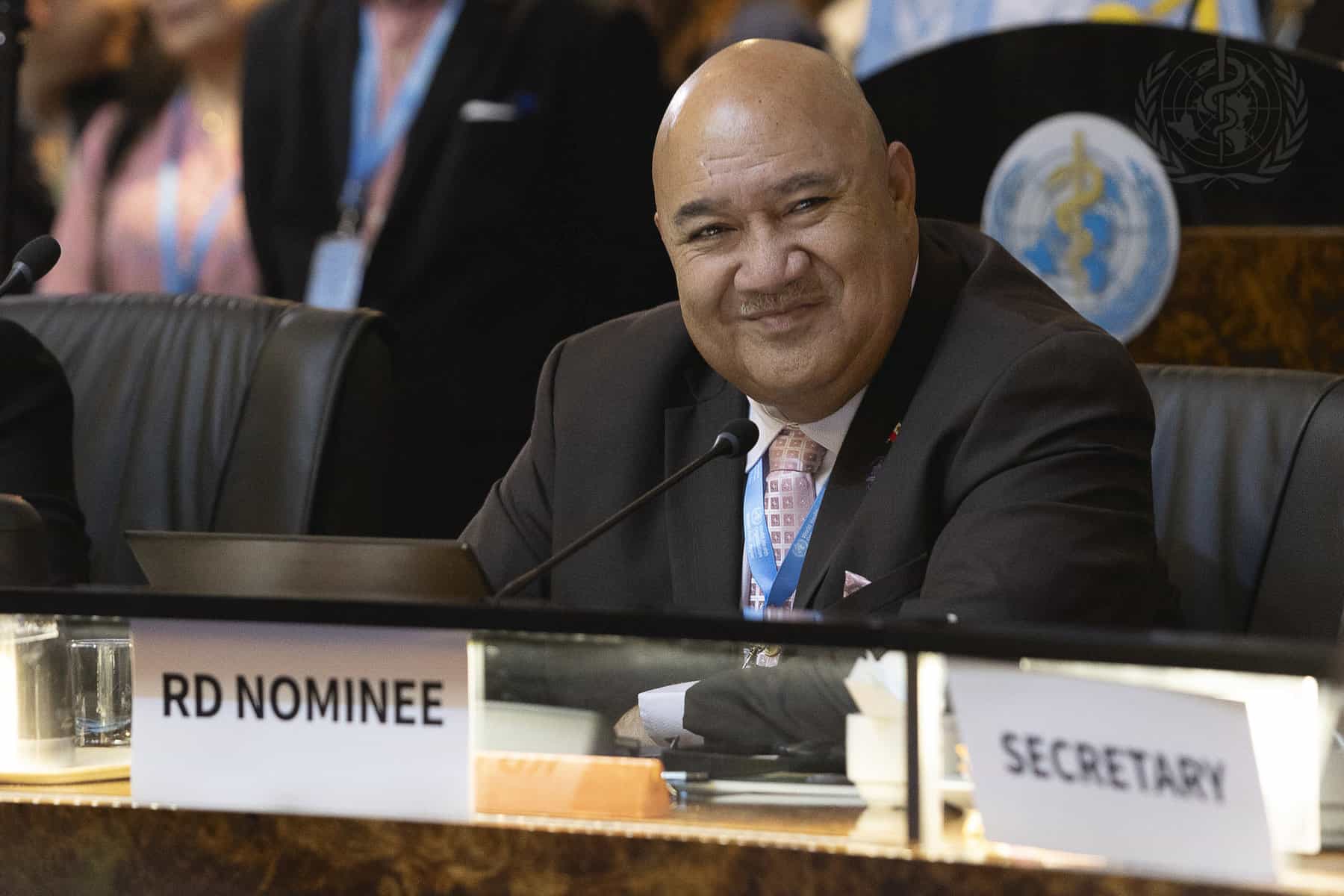Regional Director of the World Health Organisation (WHO) Western Pacific, Dr Saia Ma’u Piukala, has told the Pacific Heads of Health Meeting currently underway in Samoa that climate change and health security are amongst his priorities in his new role.
“My first priority is to promote an integrated approach to health systems development: one that integrates all health programmes and uses innovation, to improve access and quality; and one which use primary health care to achieve Universal Health Coverage,” said Dr Piukala at the opening of the meeting.
Dr Piukala acknowledged concerns regarding the rising burden of non-communicable diseases, which he noted, account for up to 75% of all deaths in the Pacific.
He said despite considerable progress on many health indicators, large groups of people in every country in the Western Pacific do not have access to quality health services.
“We must strengthen health systems to reach everyone, everywhere,” he said.
He also addressed the issue of climate change faced by many small island states.
“Climate change is directly contributing to humanitarian emergencies from heatwaves, wildfires, floods, tropical storms and hurricanes that are increasing in scale, frequency and intensity. We have witnessed these as well in our region,” he said.
Many countries in the Northern Pacific are currently dealing with a severe drought event that is impacting the well-being of many vulnerable communities.
“FSM declared a national emergency in response to severe El Niño driven drought conditions. Many communities are in urgent need of water, food assistance and saltwater intrusion into the existing water system has further aggravated the situation,” said Dr Piukala.
“In RMI, severe drought conditions are affecting people in its 15 atolls and islands. RMI has experienced little or no rain in the past two to three months. Meanwhile, storm surges have caused flooding and inundation, especially in the northern islands, leading to school closures,” he added.
In terms of health security, Dr Piukala has urged countries to use the Asia Pacific Health Security Action Framework in ensuring that we are prepared before the next pandemic hits our shores.
Last month, Dr Piukala expressed concern over the resurgence of measles. He said measles cases worldwide grew from 171,158 in 2022 to 315,542 in 2023.
“The Western Pacific reported a startling 259% more cases in 2023 when compared to 2022. As we are all aware, measles is preventable through vaccination so we must act together, show united action and resolve across the region to combat the damaging effects of misinformation that led to low vaccination uptake and the resulting outbreaks during the 2018 – 2020 period,” he said.
Dr Piukala also made reference to COVID-19 and how it pushed back gains made in immunisation and resulted in 3.6 million children in this region missing out on lifesaving Measles, Mumps and Rubella (MMR) vaccines during 2020 -2022. “We have a lot to do to ensure that we do not ever fall prey to measles again, and at the same time, are prepared for the next pandemic. I encourage all countries to improve immunisation coverage for all vaccine preventable diseases,” he said.
